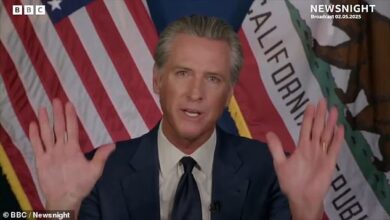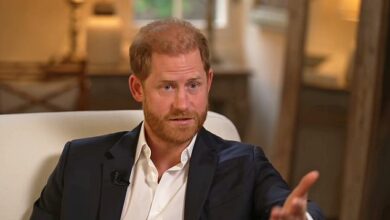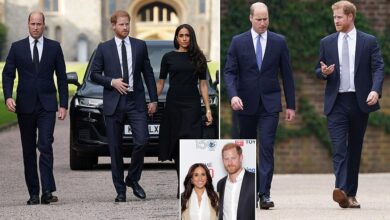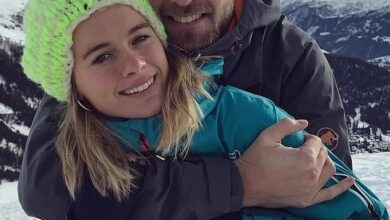Royal author suggests Prince Harry’s upbringing is to blame for his inability to ‘take responsibility for his own actions’
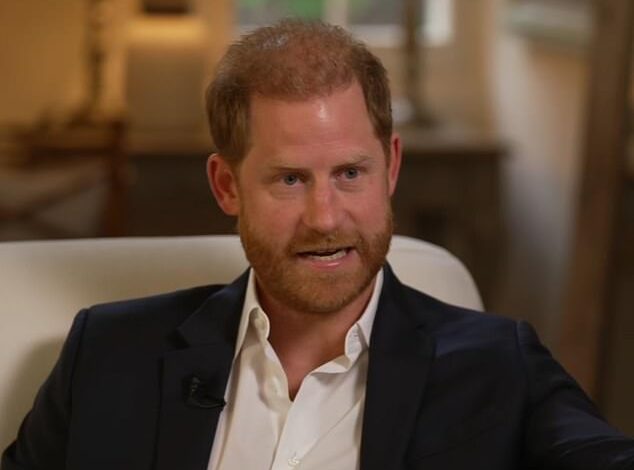
After the Court of Appeal threw out Prince Harry’s attempt to reinstate his 24/7 police protection while in Britain, he sat down for a lengthy interview with the BBC in which he claimed to be a victim of an ‘Establishment stitch-up’.
The Duke of Sussex, 40, chillingly insinuated his downgraded security status could leave him and his family to suffer the same fate as the late Princess Diana, who died in a fatal car crash in Paris in 1997.
He also launched a blistering attack on King Charles, saying he ‘won’t speak to me’ and that he doesn’t know ‘how much longer’ there was left for his father, who is battling cancer.
‘I would love reconciliation with my family.’ he said. ‘There is no point in continuing to fight anymore.’
With their eyes glued to the screen, royal commentators such as Tina Brown could not help but notice that Harry, who quit frontline royal duties in 2020, did not take responsibility for his own actions in causing the rift between him and The Firm.
When asked for her reaction by the BBC’s Laura Kuenssberg, Brown said: ‘I didn’t hear two very crucial words in that entire sort of jeremiad about, you know, “I’d like to reconcile, I’m sorry”.
‘I mean, he never said, “I’m sorry, I’m sorry I caused my family all of this pain”. That is really what they’re upset about, not the security.’
Although she could not have predicted what Harry would say in his extraordinary BBC interview, royal author Ingrid Seward put the Duke’s general lack of contrition down to his childhood in her book My Mother and I.
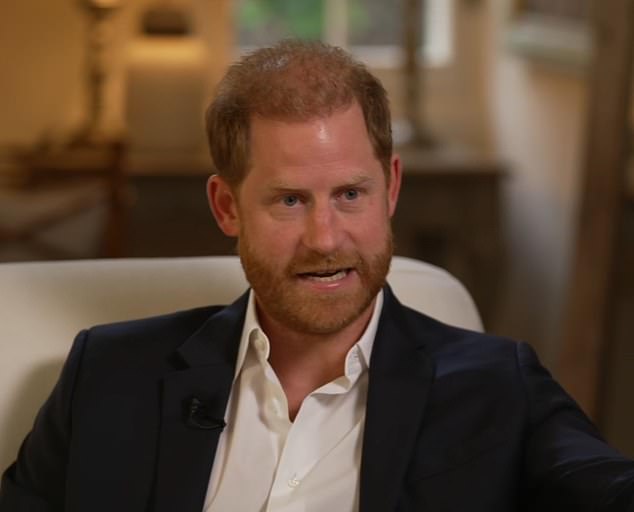
Prince Harry launched a blistering attack on his family, the Royal Household and the Government just hours after losing his court battle
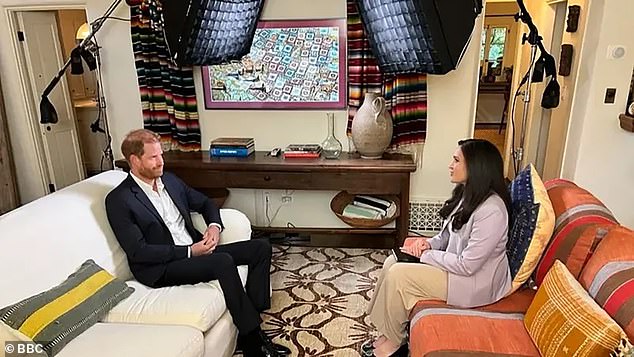
During the interview, Prince Harry was quizzed by BBC journalist Nada Tawfik on whether the last step to repairing relations with his family was the security saga
Seward, who has edited Majesty Magazine since 1983, theorised that had Charles been firmer with Harry, the prince ‘might not have caused him so much worry’ in later life.
‘Like his mother and grandmother, Charles hated confrontation and did what he usually did when faced with a crisis beyond his immediate control: turned away from it,’ she wrote.
‘This course of inaction would come to haunt Charles over the years. His youngest son, Prince Harry, complained how difficult it was to get hold of “Pa”, as he calls him, when his father didn’t want to take his calls, which he frequently didn’t.
‘After Harry and Meghan married, there was seldom a simple phone call from his father. They all contained various demands or requests, sometimes wrapped up in niceties, sometimes not.
‘Again, had Charles been firmer with Harry and, to some extent, William, in their formative years, they might not have caused him so much worry.’
Like many journalists of her generation, Seward would often find herself invited to Kensington Palace for cosy chats with Princess Diana or to the ski slopes of Switzerland with Charles, William and Harry.
She witnessed at close quarters ‘the boys’ grow into men, becoming one of the most qualified people to comment on what went wrong in Harry’s upbringing.
Seward describes how, for a long time, Princess Diana called Harry ‘her little baby’ and that he didn’t want to share his mother with William, who is two years his senior.
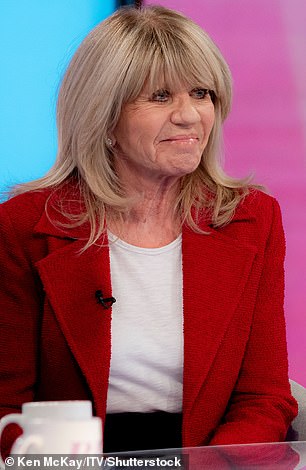
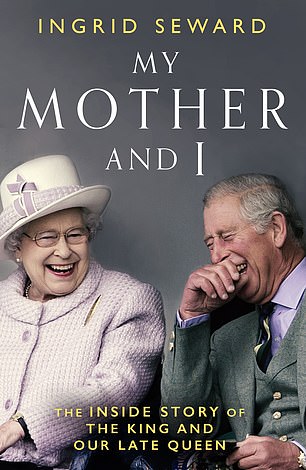
Ingrid Seward (left), who has spent 40 years following The Firm, claimed in her book My Mother and I (right) that Harry’s emotional problems were caused because his father had been too soft on him
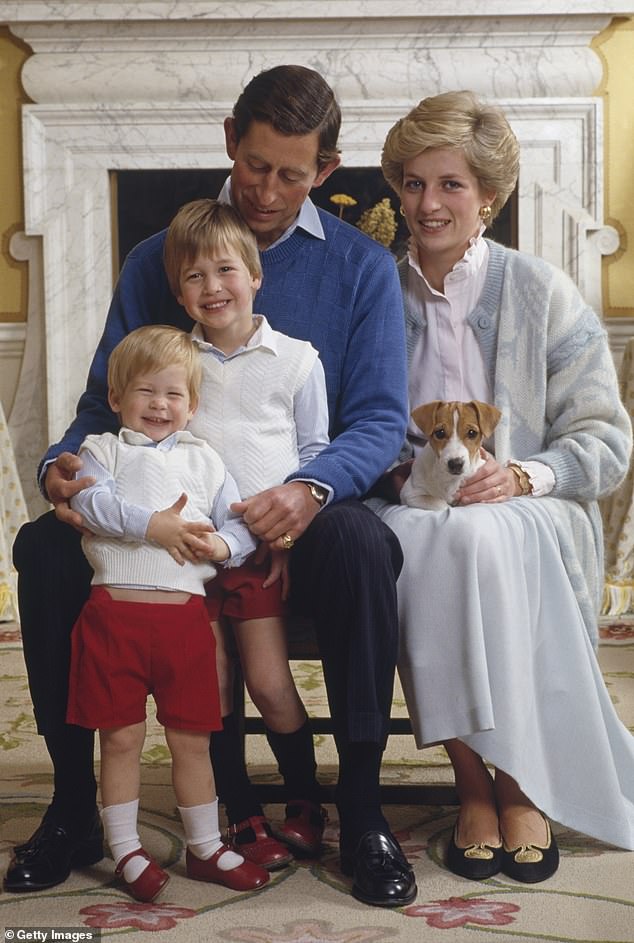
Prince Charles and Princess Diana at home in Kensington Palace with their sons Prince William and Prince Harry in December 1986
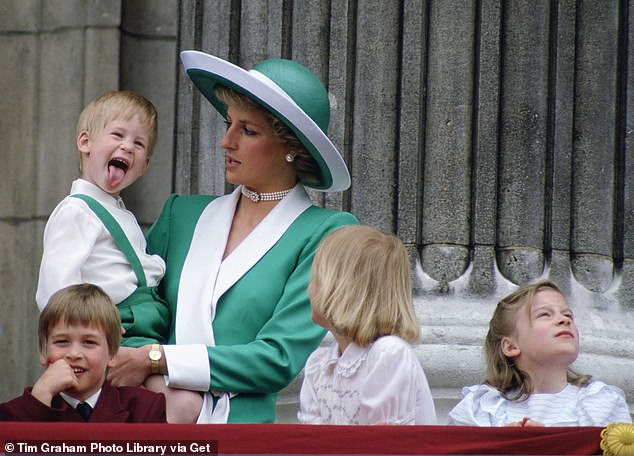
Prince Harry sticks his tongue out while being held by his mother, Princess Diana in 1988
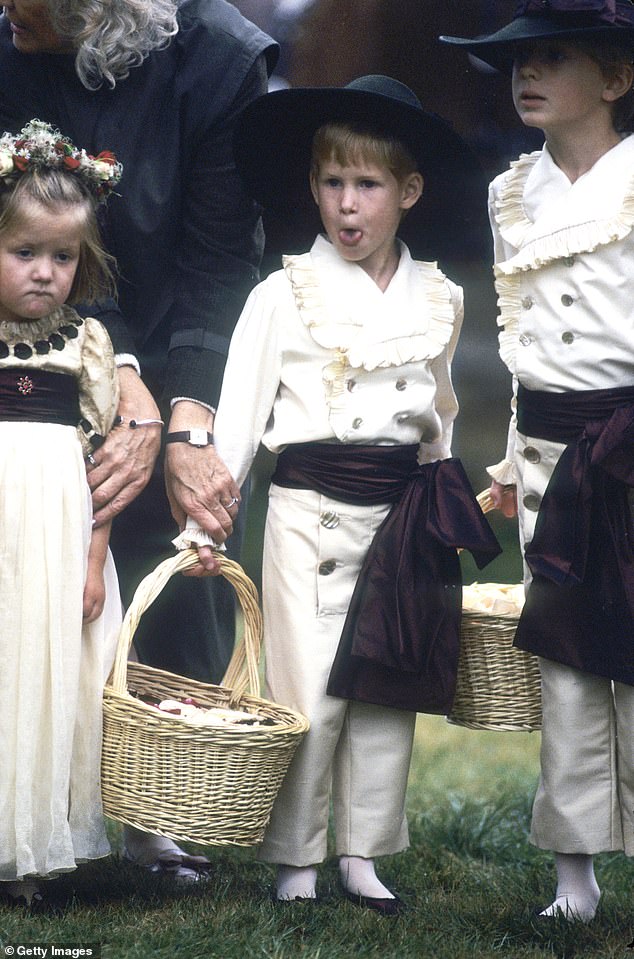
Prince Harry sticks out his tongue as he stands with his cousins as a pageboy at the wedding of his uncle Charles Spencer on September 17, 1989
Perhaps due to their thirst for attention over their mother, Harry also always felt like he needed to compete in everything with his brother, which was especially difficult given William was notably more successful at school.
Diana was concerned everyone was going to think her younger boy was ‘thick’ as he didn’t have any thirst for knowledge and was never interested in sitting down with a book, Seward wrote.
Despite getting the finest education at Eton, he struggled at school and exams, with his housemaster admitting he was not cut out for university.
In Spare Harry claimed that his memory was bad because after his mother’s death he ‘didn’t want to fix it, because memory equalled grief’. Prince William, on the other hand, did well at school and at university.
Learning was so hard for Harry growing up that Diana’s friend and alternative healer Simone Simmons was called in to give healing to him – partly for headaches but also because he was struggling with dyslexia.
Seward wrote that growing up, the late Queen had always thought Charles and Diana’s children were ‘unruly little boys’.
She recalled: ‘On one occasion they climbed onto the grand piano at Sandringham and Harry knocked a vase of flowers onto the floor, where it broke.
‘Nanny was summoned to organise clearing the mess, but the Queen got to hear about the boys’ antics and was not pleased.
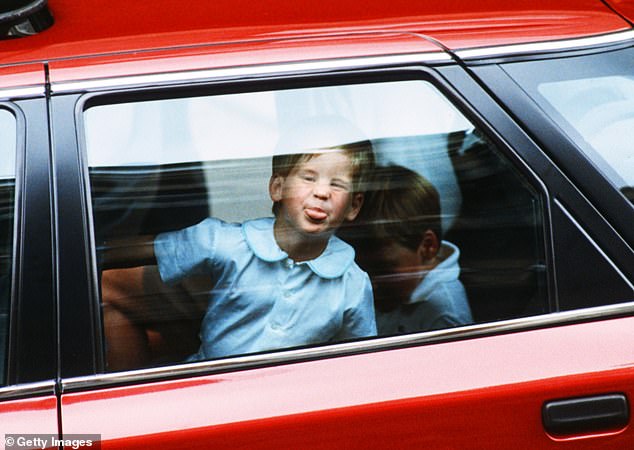
A young Prince Harry sticks his tongue out to the cameras
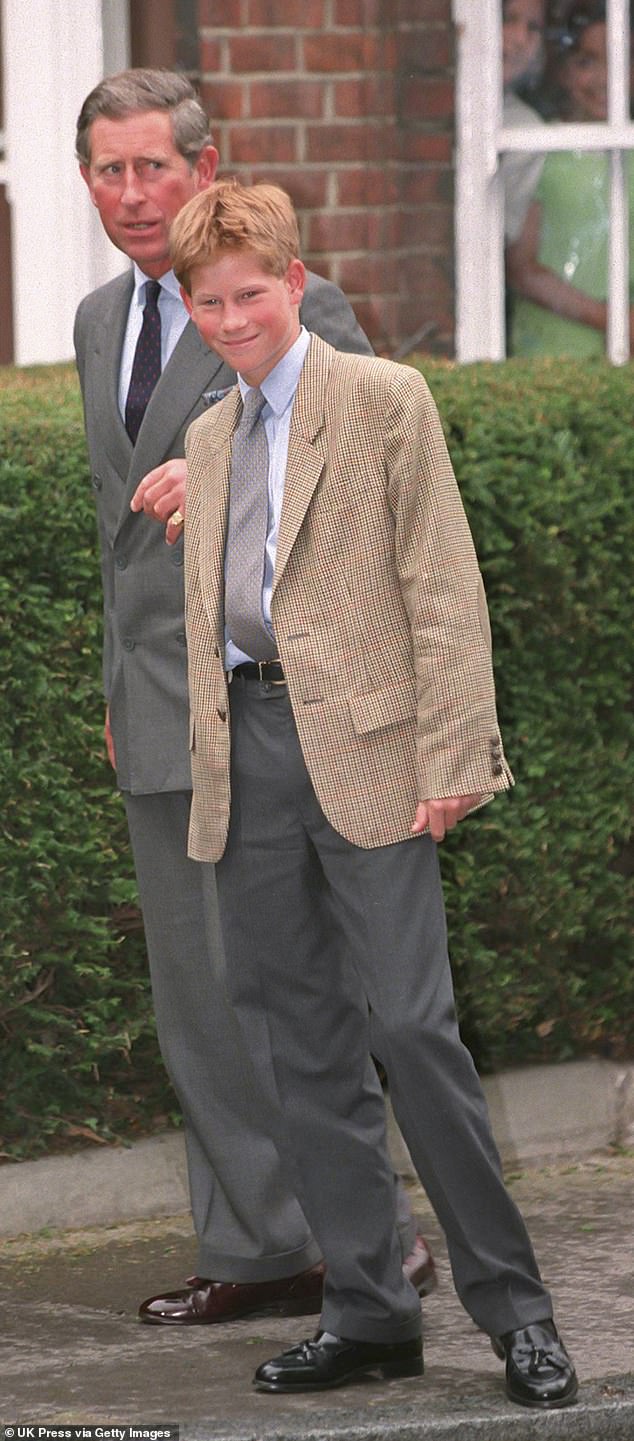
Prince Harry arrives at Eton College with his father Prince Charles to settle in before his first day on September 2, 1998
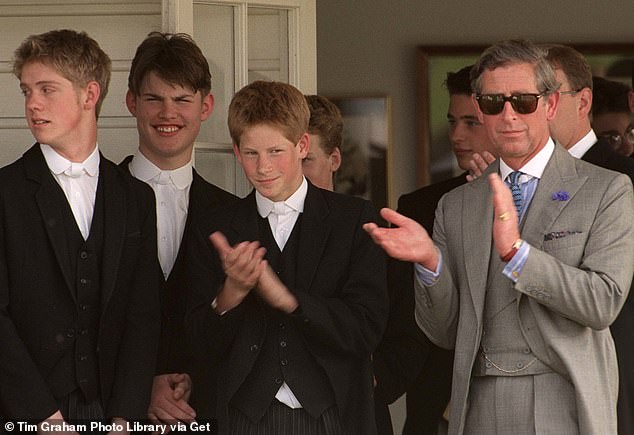
Charles and Prince Harry at The Eton Boys’ Tea Party at The Guards Polo Club. Despite getting the finest education at Eton, he struggled at school and exams, with his housemaster admitting he was not cut out for university
‘It may have been holiday time, but this was still a court bound by rules and conventions that had changed little since Victorian times.’
At the age of nine, Harry turned to his brother and declared: ‘You’re going to be King; it doesn’t matter what I do.’
Put another way, according to Seward, he saw this as a licence to do almost whatever he wanted.
But it appears Harry may have been enabled at times with his rulebreaking by both Charles and Diana.
For instance there are reports that he showed an early talent for mimicry that took scant account of the importance of the person he was imitating. But instead of telling him off, it appears his antics amused his parents.
‘Later events suggest, however, that a bit more early discipline might have been helpful’, Seward wrote.
Perhaps Charles and Diana’s softness towards their children was due to the guilt of what they were putting them through as their marriage became riven with acrimony.
It is thought that often they may have heard their parents fighting and witnessed Diana’s tearful outbursts, although as Harry was two years younger, he might have been shielded from any unpleasantness by being whisked off by nannies.
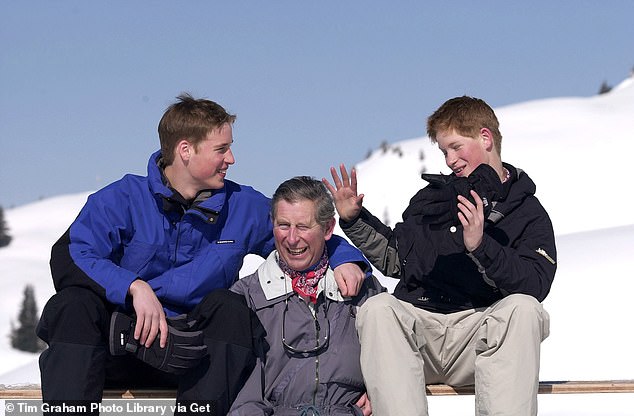
Prince William and Prince Harry share a joke with Prince Charles during a photocall on the ski slopes in Klosters, Switzerland
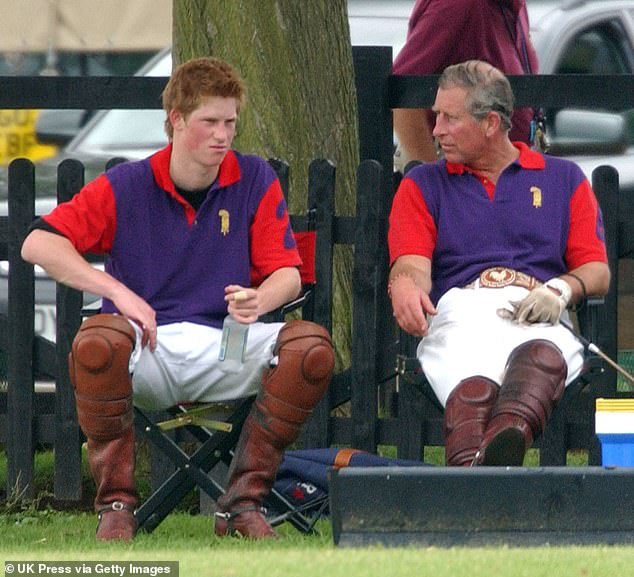
Prince Harry (pictured with his father at a charity polo match) has claimed his royal upbringing was where he began suffering from ‘generational trauma’
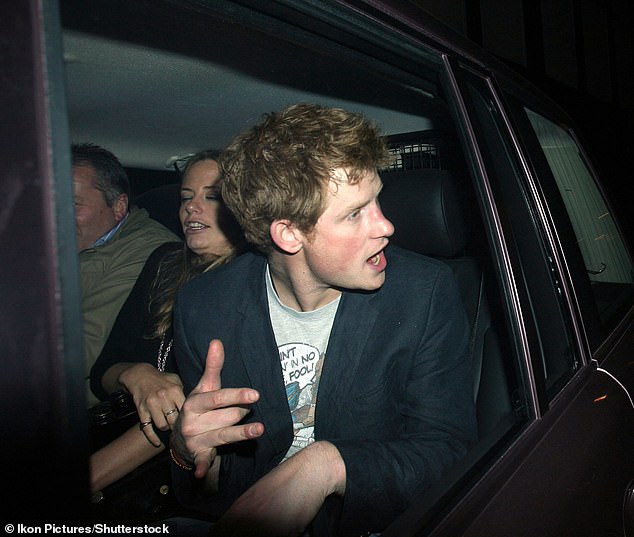
Prince Harry leaves Raffles nightclub in London on March 7, 2009
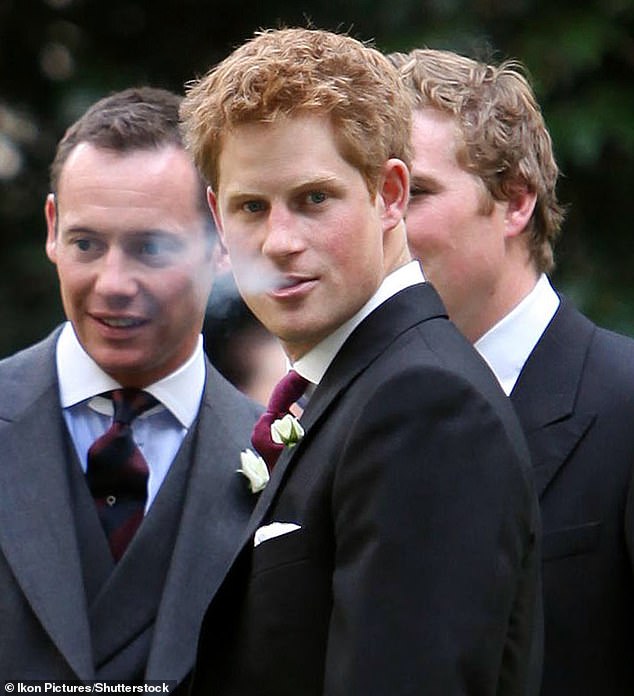
Prince Harry was spotted smoking at a friend’s wedding in August 2009
However looking back on Harry’s upbringing, Seward claims Charles ‘probably regrets’ that he wasn’t stricter with Harry and William.
She told Fox News: ‘He went on with Diana’s freestyle of bringing up children.
‘Diana allowed them to do, more or less, what they wanted, which was very fashionable in those days. You let children just get on with things.’
The Princess of Wales ditched a more formal approach to raising her children and became known for her unconventional hands-on approach behind Palace doors.
Instead of formal events, she prioritised playtime, scheduled impromptu trips with her sons and attended more to their emotions.
However Charles was raised in a more traditional environment as a future sovereign and kept things more formal with his children.
It seems Charles’s way of showing them love, rather than smothering them with hugs and kisses, was to teach Harry about nature and plants – saying ‘they have feelings too’.
‘I think Charles probably regrets that he wasn’t a bit stricter, because it might’ve given both boys a few more boundaries,’ wrote Seward.

